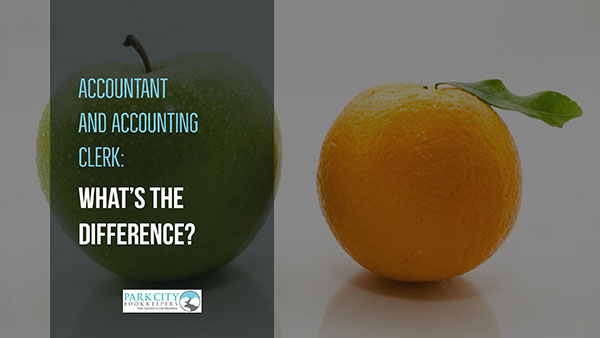It is a common mistake, not knowing the difference between an accountant and accounting clerk, or confusing them with each other. While they both work in the same field and may provide some of the same services, their roles and functions are significantly different. To properly understand the differences between these two positions, it is also essential to take into account the different functions required in accounting, such as recording financial data, preparation of reports, management and cost accounting, auditing and so on.
First, a look at the similarities between an accountant and an accounting clerk:
#1. Both are part of the accounting cycle
Both accounting clerks and accountants deal with accounting data, and are essential for the completion of a business’ accounting cycle – this is the flow of financial information from transactions into accounts, and finally into financial reports.
Accounting clerks are essential for the first part of the cycle; they are usually responsible for entering financial data into the appropriate accounts, and for properly filing documents away. Once the relevant data has been entered into the books, accountants will need to complete the next phase of the cycle by preparing financial reports, filing taxes, etc.
#2. Numeracy skills
Both accounting clerks and accountants need to have strong numeracy skills to be effective at their day-to-day tasks. Accounting clerks will have to enter data into spreadsheets and use complex excel formulas, while accountants will have to analyze all that data and organize it to create meaningful reports.
#3. Communication skills
Both accounting clerks and accountants need to be able to explain complicated financial data to clients who may have little or no background in accounting or finance. To be successful at this, strong communication skills are required in both positions.
The differences between accountants and accounting clerks:
#1. Education level
One major difference between an accountant and an accounting clerk is the minimum level of education required for each role. Accounting clerks, typically, are not required to have a very high level of education. Usually a high school diploma will suffice, though in some cases, accounting clerks may have higher qualifications. In contrast, accountants are required to have a relatively high level of education; a Bachelor’s degree, at least.
The highest level of accounting qualification in the US is the CPA, which stands for Certified Public Accountant. To obtain this title, accountants who have already acquired a Bachelor’s degree in accounting or a related field are required to complete an additional 30 hours of study, pass four exams over an 18-month period, and amass two years of accounting-related work experience.
#2. Career scope
Accounting clerks are limited to bookkeeping and other basic administrative tasks; professional accountants, however, have multiple options. As noted earlier, the field of accounting has a wide range of sub-fields such as management accounting, taxation, audit, etc. Accountants may choose to specialize in any of these advanced fields.
Should you hire an accounting clerk or an accountant?
Given the similarities and differences between accountants and accounting clerks, this is a valid question that does not have a definite answer. It boils down to the size and nature of your business. A small business with only 5-10 employees may get by with only basic bookkeeping services, whereas a larger firm in a heavily regulated industry such as financial services, will require a dedicated accounting team that includes both accounting clerks and professional accountants.
How can accounting clerks become accountants?
Despite the differences between the two fields, accounting clerks can aspire to become accountants, and the more experience they gain, the better their chances of progression. After a few years, an accounting clerk may advance to the position of an accounting assistant, which is a role that entails more administrative responsibilities. This is usually where fresh accounting graduates start, and to progress beyond this level, a Bachelor’s degree in accounting will be required.


Very informative.
Thank you!